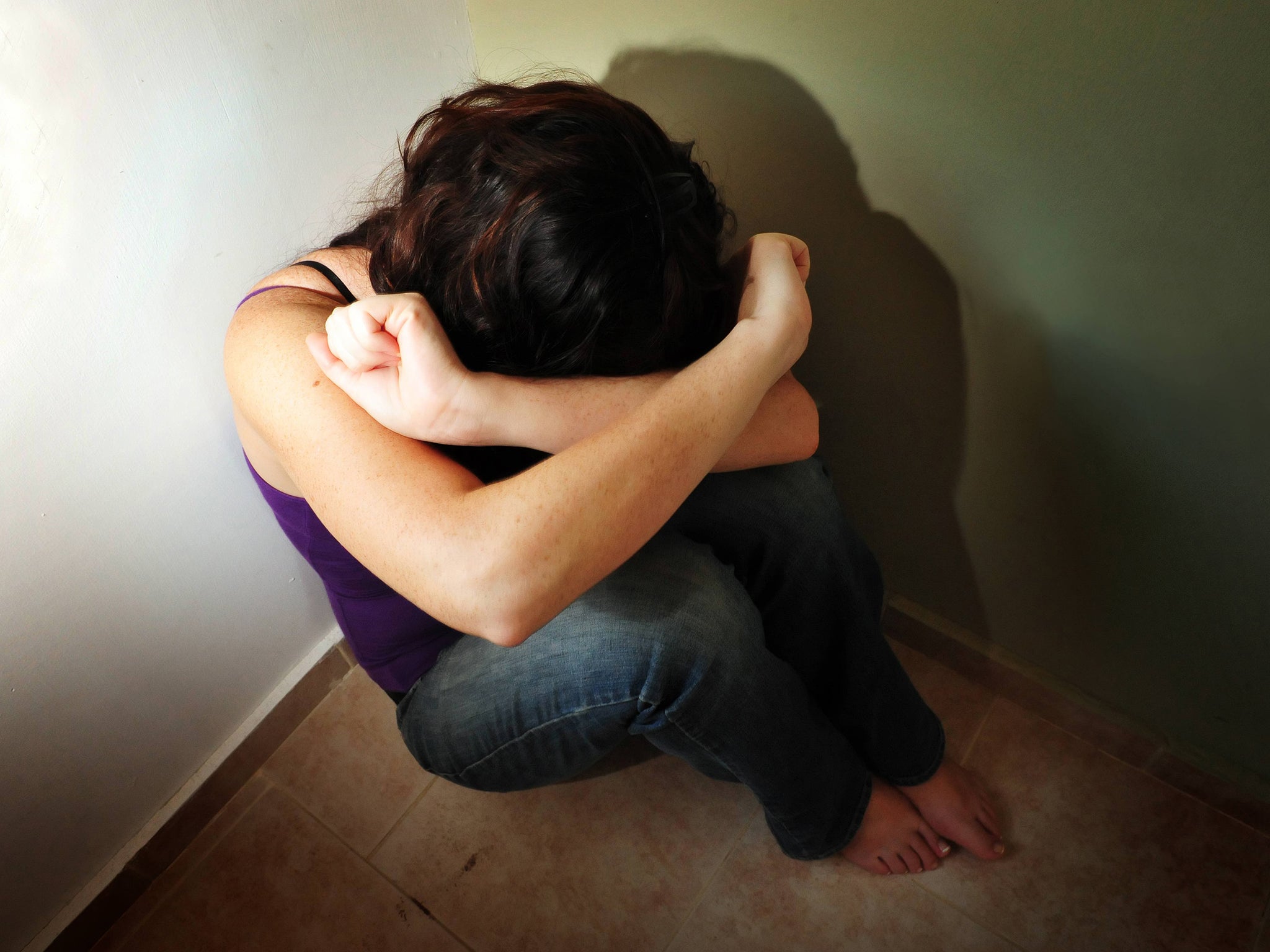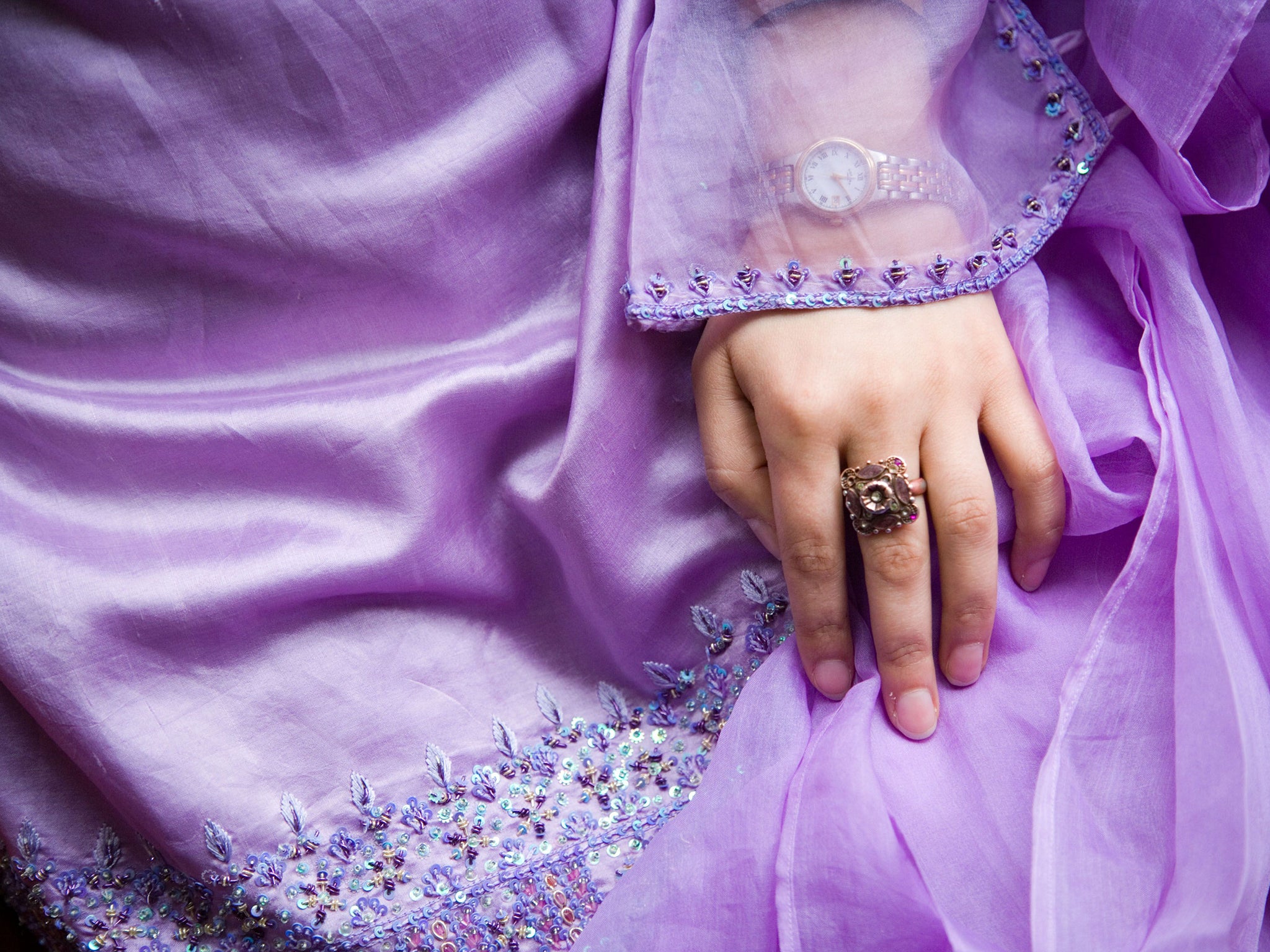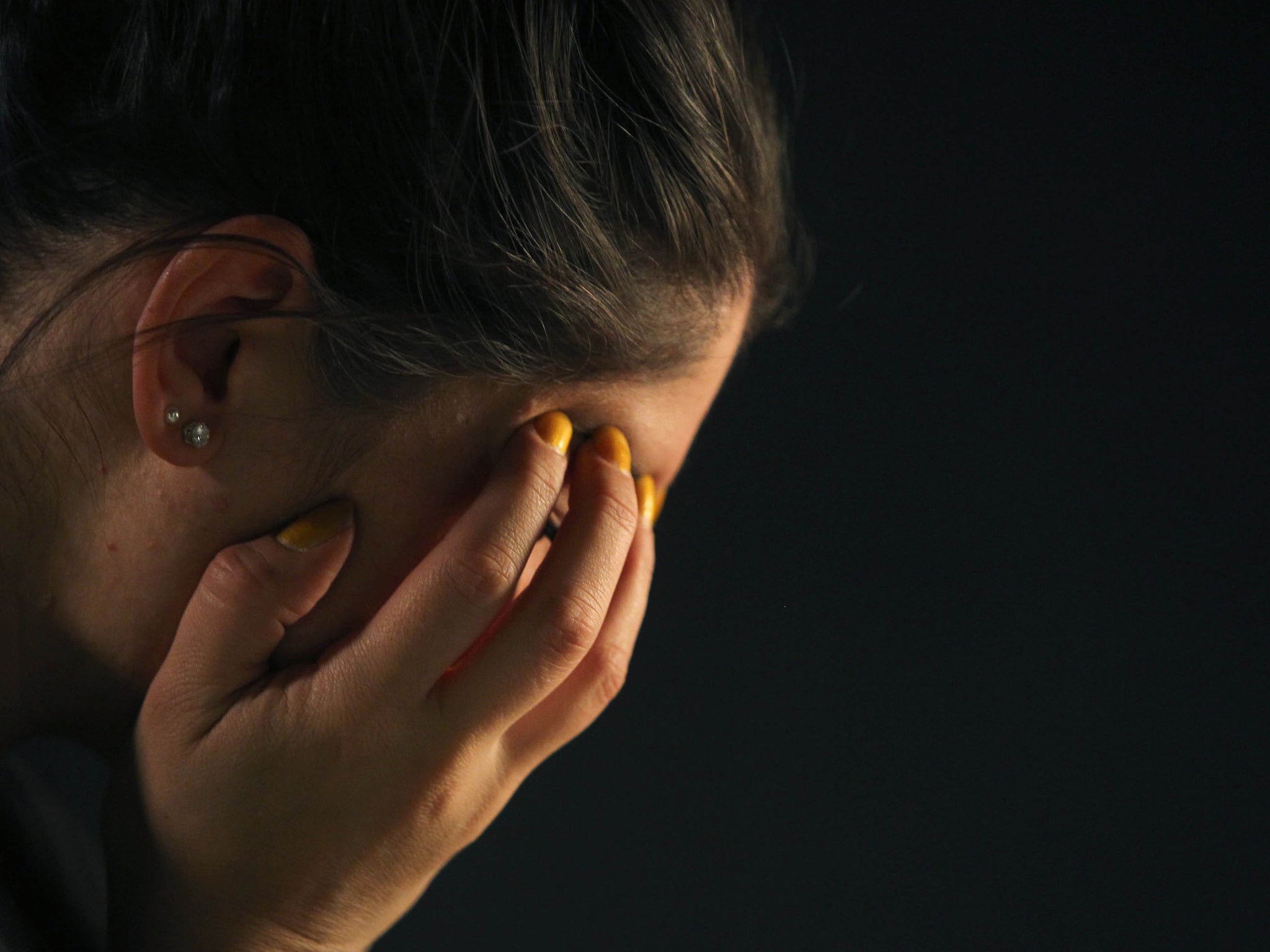Shunned, beaten, burnt, raped: The dowry violence that shames Britain
Exclusive: Hidden epidemic abuse has led to comparisons with FGM

Police have launched the first-ever investigation into “dowry violence” in Britain, after The Independent discovered evidence that hundreds of women a year are being burnt, scalped, imprisoned or otherwise abused in their homes over financial disputes with their in-laws.
Campaigners are calling on police and government departments to begin compiling official figures on what has been described as the “widespread and underground abuse of thousands of women”.
Charities that work with women in affected communities have recorded hundreds of such cases in Britain in the past year alone and say these are “only the tip of the iceberg” – but not a single police force in the UK keeps data on dowry violence.
Senior officers said they would be launching an initial review into the issue after being confronted with evidence about the scale of the problem. The hidden nature of dowry violence has led to comparisons with female genital mutilation (FGM) before it came to police and public attention.
Dowry, a centuries-old custom which is practised across the world, involves a woman’s family paying her new husband’s family. It is still prevalent in parts of South Asia, the Middle East, parts of Africa, some areas of Eastern Europe, and in some communities in Britain. When husbands do not receive enough money in exchange for marrying their new bride, women can be on the receiving end of horrifying abuse. Worldwide, around 14,000 dowry deaths have been recorded.
In some countries, dowry has been outlawed due to the female death toll associated with it, but the practice remains legal in Britain.

The Independent has seen evidence of around 50 cases of dowry violence that have been reported to the Sharan Project, which works with ethnic-minority women experiencing violence.
The Iranian and Kurdish Women’s Rights Organisation (IKWRO) says it has dealt with hundreds of abuse cases that include some dowry-related element. “Nearly every case we deal with involves some form of dowry abuse,” it said.
The charity Karma Nirvana in Derby which helps victims of honour crime has received “dozens” of phone calls to its helpline regarding the issue in the past year. In addition, community workers based in Coventry said they had seen “thousands” of dowry-related cases over the years which have driven women to “hospitalisation and suicide”.
All the community groups are calling for police to start recording the abuse, and say that health professionals, social services, immigration officials, coroners, and school-age children need to be educated on the issue. They are also urging police to reopen unexplained cases of missing women from ethnic-minority backgrounds, saying that awareness of possible dowry links could throw up new leads.
Police chiefs pledged to “create a new system” to tackle dowry violence. Commander Mak Chishty, who is the Association of Chief Police Officers’ national lead for forced marriage, honour-based violence and female genital mutilation, said working with dowry violence would now be incorporated into the training of 140,000 police officers in this country.

“It’s very hard for us to put strategies in place if no one tells us it’s going on,” he said. “Following this information, there will be a real hard line with this. We may need to create some sort of new system.”
Records from the Sharan Project show that around 50 women have reported being beaten, blackmailed and imprisoned by their in-laws because they had not received enough dowry money in the past year.
Polly Harrar, who is the project’s founder, said: “Cases involve men marrying women purely to pay off their gambling debts, to pay business debt, and one case involved a man marrying a woman because he wanted to buy furniture. When her dowry didn’t cover the furniture he wanted, he beat her until her parents handed over more money. These cases all happened in this country.”
She said immigrant women were particularly vulnerable, with the “gun of dowry being held to their heads, and more money is extracted from their families until they get permanent status”.
Diana Nammi, founder and director of the IKWRO, said: “There’s a phrase that ‘money talks’: in the cases we have seen ‘dowry talks’. It is basically protection money that parents pay to their daughter’s married families to guarantee abuse doesn’t occur, and if enough protection money isn’t received then the woman pays the consequences.”
Hardial Kaur, who founded the Sahil Project in Coventry in 1986 to support Asian women experiencing isolation, said: “Over the years, I have seen women hospitalised with severe mental health issues because of this. I remember one woman who went to the police and they thought she was just a mad woman talking about money. They have no idea what’s happening. I can recall more than one case where a woman was put through electric shock therapy because no one knew what was wrong with her – it was the pressure of dowry.”

Sandip Kaur, who was employed as a community worker for the project for more than two decades, worked with cases of dowry violence almost every day.
She said: “One woman was burnt with cigarettes every time her parents failed to meet dowry demands. Her husband wanted money to pay his mortgage; that’s why he married her. When the demands couldn’t be met he doused her in petrol, lit a match and threatened to set the house alight. Part of the reason people get away with it is because it’s so secret, and public bodies don’t know what the word ‘dowry’ means, let alone the abuse women endure because of it.”
The Crown Prosecution Service does not provide guidelines for dealing with dowry violence and the topic is not mentioned at all in its Violence Against Women and Girls strategies.
Jasvinder Sanghera, founder of the Karma Nirvana charity, blamed the “absence of records” on dowry violence on a “complete absence of recognition” that the problem exists. “We need police to start recording this, and then we need professional bodies like the British Medical Association to start talking about this very openly because it’s a factor in depression and suicide,” she said.
Usha Sood, a barrister who works in Nottingham and has dealt with around 50 cases of dowry violence in the past year, said: “If police and coroners were trained to know about this, a proportion of unexplained deaths involving immigrant women would become explained.”

Mr Chishty said: “Once we start recording this, I suspect it will be a little bit like when we first started recording FGM – it will be very under-reported and it will be very difficult to reach the women who are being abused.”
Case Study: 'I was in a slave house'
Dwinderjit Kaur, 51, lives in Nottingham with her two children. In 1997 she became the first British woman to successfully sue for the return of her dowry through civil court, following 18 months of marriage. After graduating from King’s College London with a science degree, Ms Kaur married aged 26. Before the wedding, her in-laws asked for a few hundred pounds and cases of jewellery as a dowry.
After two weeks, they wanted a £4,000 cheque, so my dad wrote one for my sake. They still said I wasn’t bringing in enough dowry for them, so I had to do more cooking, cleaning and washing.
I discovered my ex-husband got married because his family wanted a bigger house and money for a business, and they thought my dowry would pay for it. When my dad told them that he couldn’t afford all of that, I suffered for 18 months. I also wasn’t allowed to speak to anyone on the phone, wasn’t allowed into the garden alone, or allowed to make eye contact with neighbours over the fence in case I told anyone. I was in a slave house.
When I went into labour with my first child, they refused to take me to hospital because I’d been a ‘bad investment’.
I made my own way there with contractions, and gave birth alone. The freedom of being in hospital allowed me to call my parents and tell the nurses. The hospital staff rang the police. I had to go with them to the house to collect a few things, but no one could be arrested because the police didn’t know what dowry abuse was.”
